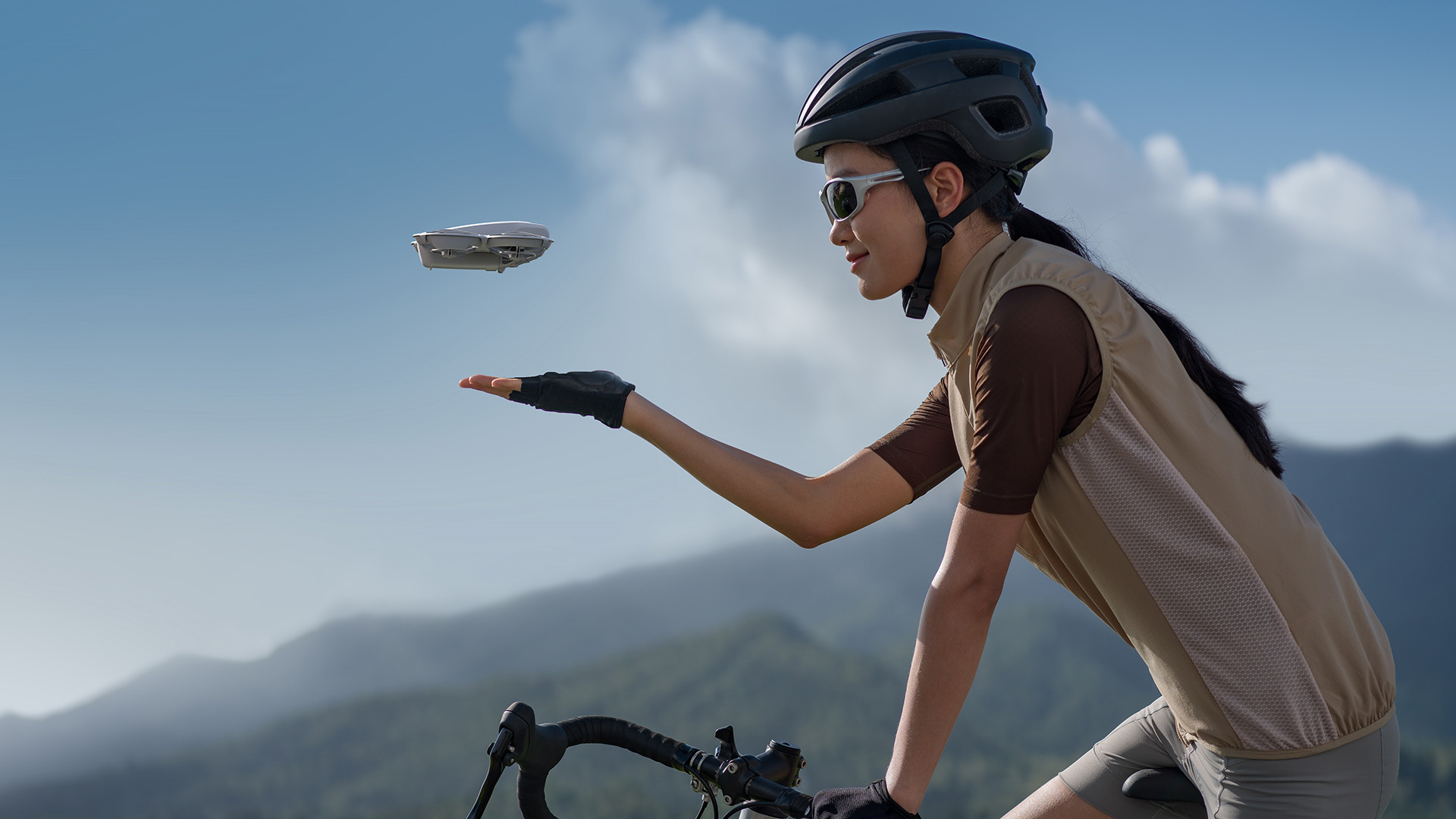

Derek Adams
If you're dipping your toes (or propellers) into the drone game for the first time and don't want to break the bank on a fancy-pants model that practically flies itself, fear not! The best beginner drones are here to save the day – and your wallet.
Gone are the days of wrestling with complicated controls and sending your drone on a one-way trip to the neighbour's backyard. Thanks to technological wizardry and more improvements than you can shake a flight manual at, today's beginner drones practically fly themselves. Leave the best drones for prosumers.
Now, don't expect these beginner drones to do all the heavy lifting for you – especially if you're counting your pennies. But fear not! With a bit of savvy shopping and the right guidance (like the gem of a guide you're reading right now), you'll be soaring through the skies like a seasoned pilot in no time.
Our current favourite beginner drone is the DJI Neo, a fantastic and easy-to-operate beginner drone for an affordable price. The DJI Mini 3 is one of the more premium options, but the camera performance and manoeuvrability are just stunning. For something more affordable, check out DJI Mini 2 SE – it's all DJI but with a slightly less amazing camera unit.
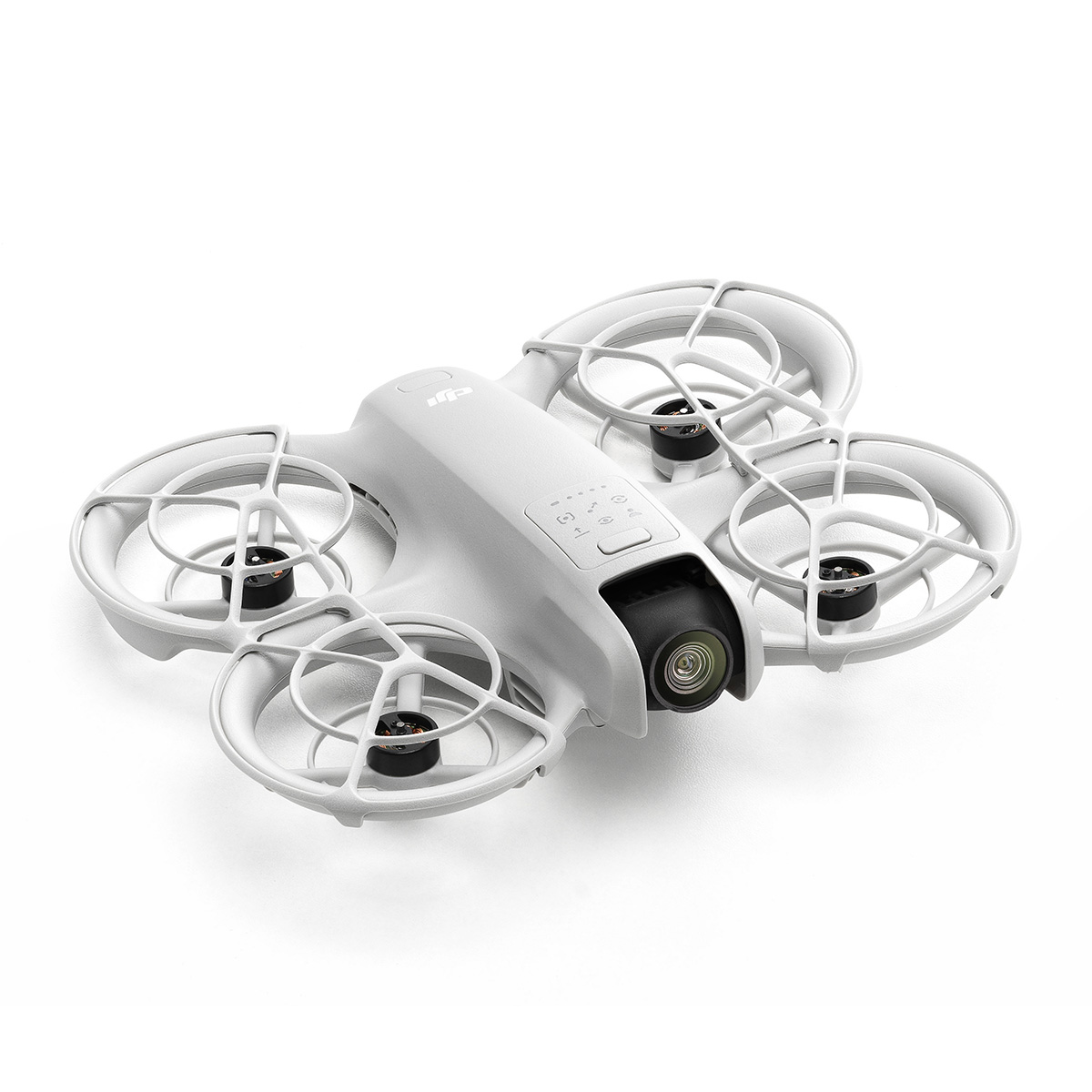
The DJI Neo is a lightweight, beginner-friendly drone with autonomous flight modes and a 4K camera. Despite the shorter flight time and slow follow speed, it offers impressive features like pre-programmed flight patterns and stability in light winds. Ideal for content creators and beginner pilots.
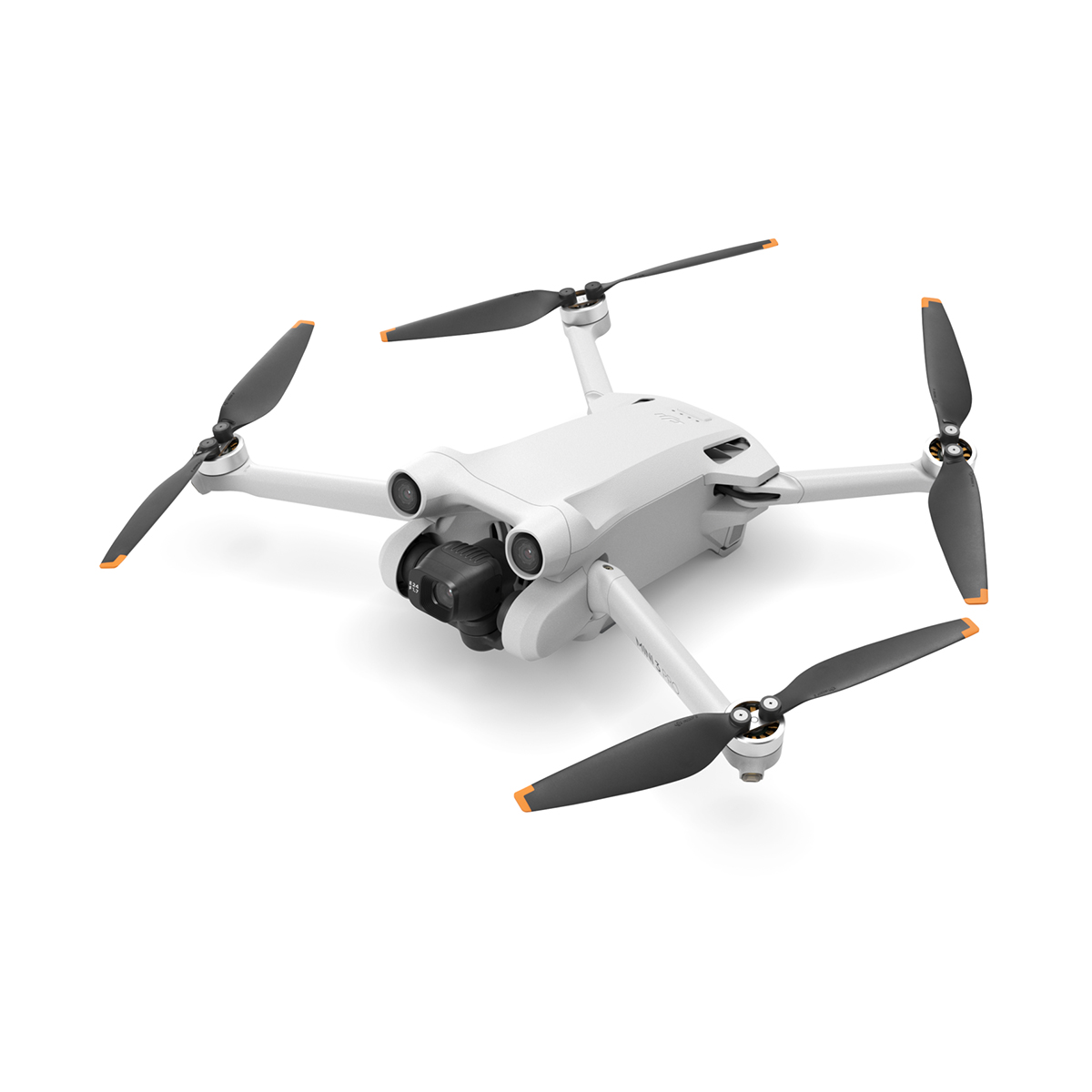
While it has the same 1/1.3-inch type sensor and can record 4K video, the DJI Mini 3 is distinctly more ‘entry-level’ than the DJI Mini 3 Pro. Nevertheless, it’s very easy to fly, and you also get the excellent Quickshots modes. An excellent drone for first-time pilots.
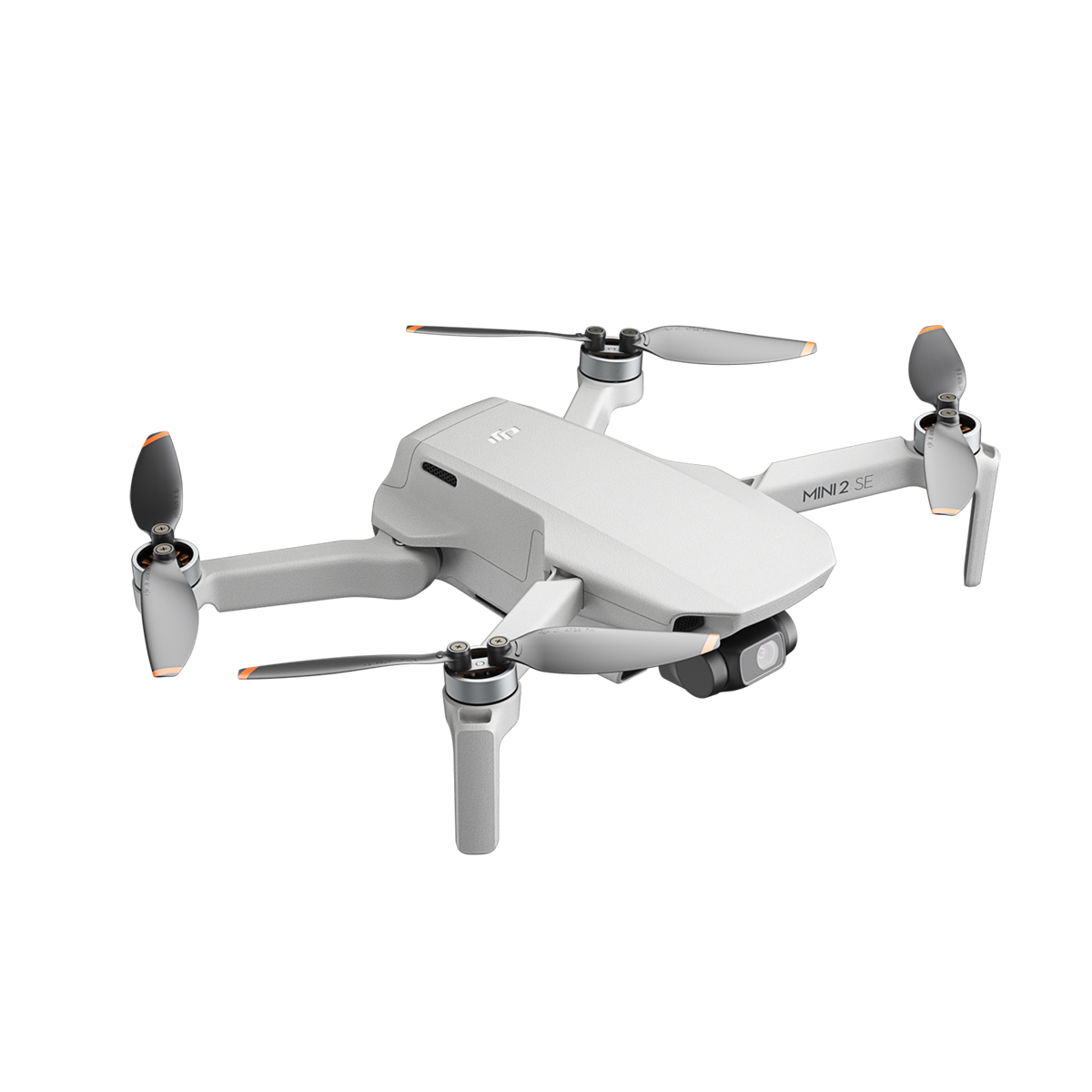
The DJI Mini 2 SE is another superb drone for beginners, which is also more affordable than the Mini 3. It offers plenty of user-friendly features. There are a couple of small trade-offs, but at this price point, it's hard to be mad at the DJI Mini 2 SE.
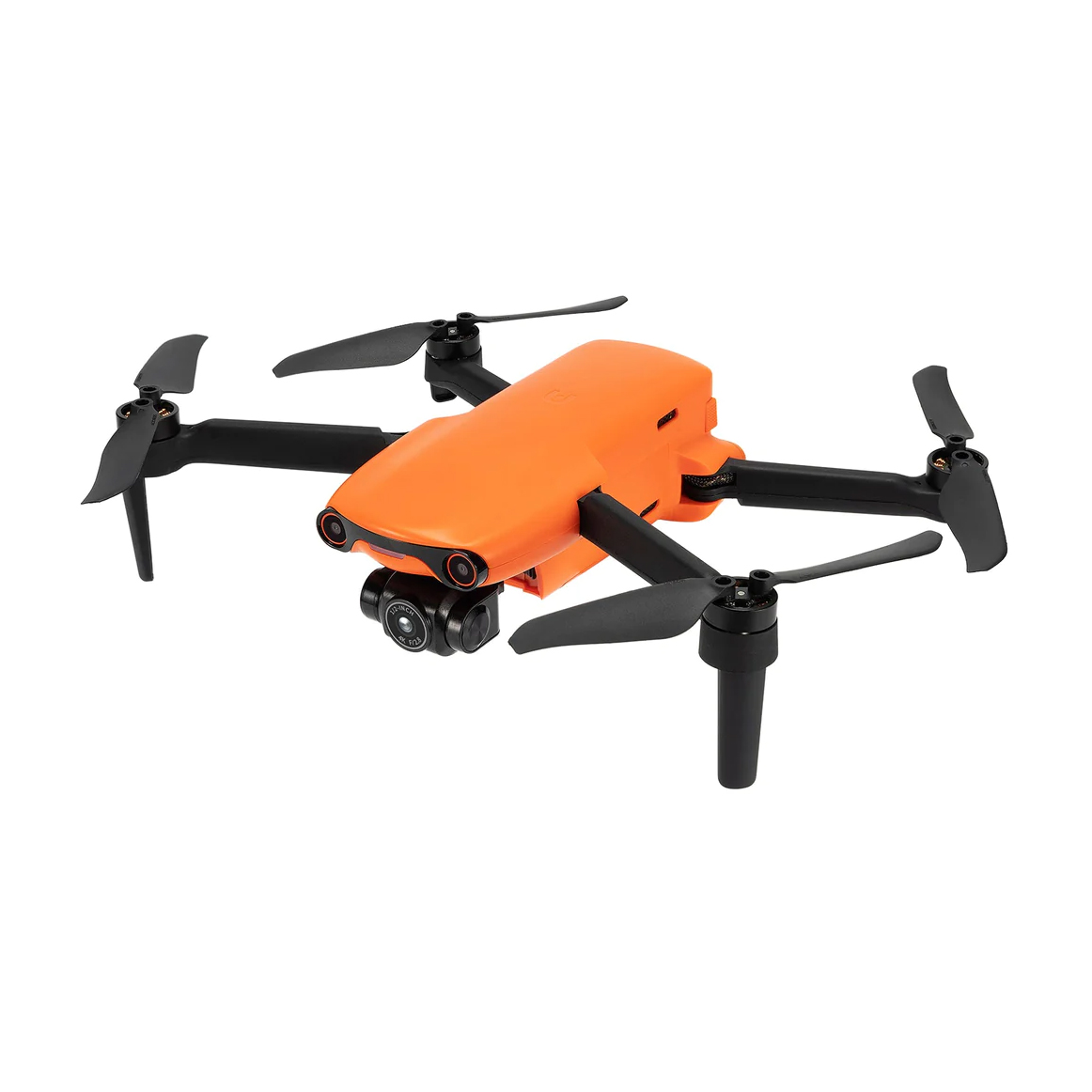
The Autel Evo Nano shoots beautiful videos, thanks to the 1/2-inch sensor that punches way above its weight. A beautifully weighted gimbal creates super-smooth camera movement while the drone delivers a pin-sharp 2.7K live feed to your phone's screen.
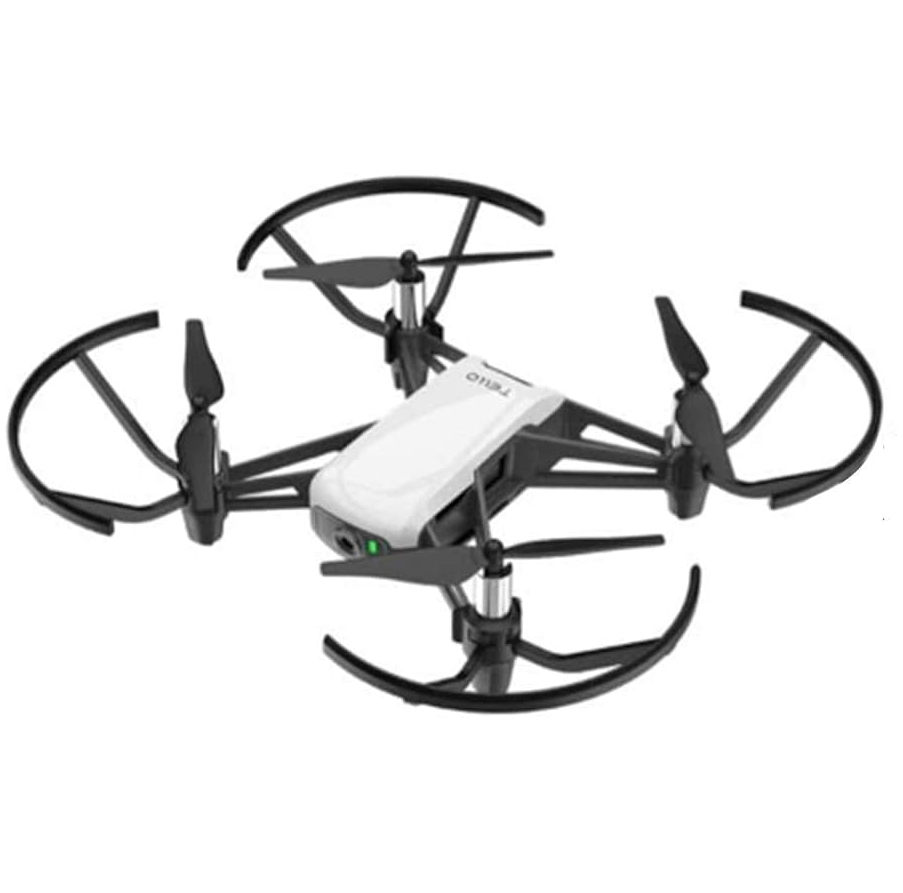
The Ryze Tello drone excels with precise maneuvers, smooth video stabilization, and an easy-to-use app. However, it struggles in wind and at its range limits. Ideal for indoor use and beginner pilots.
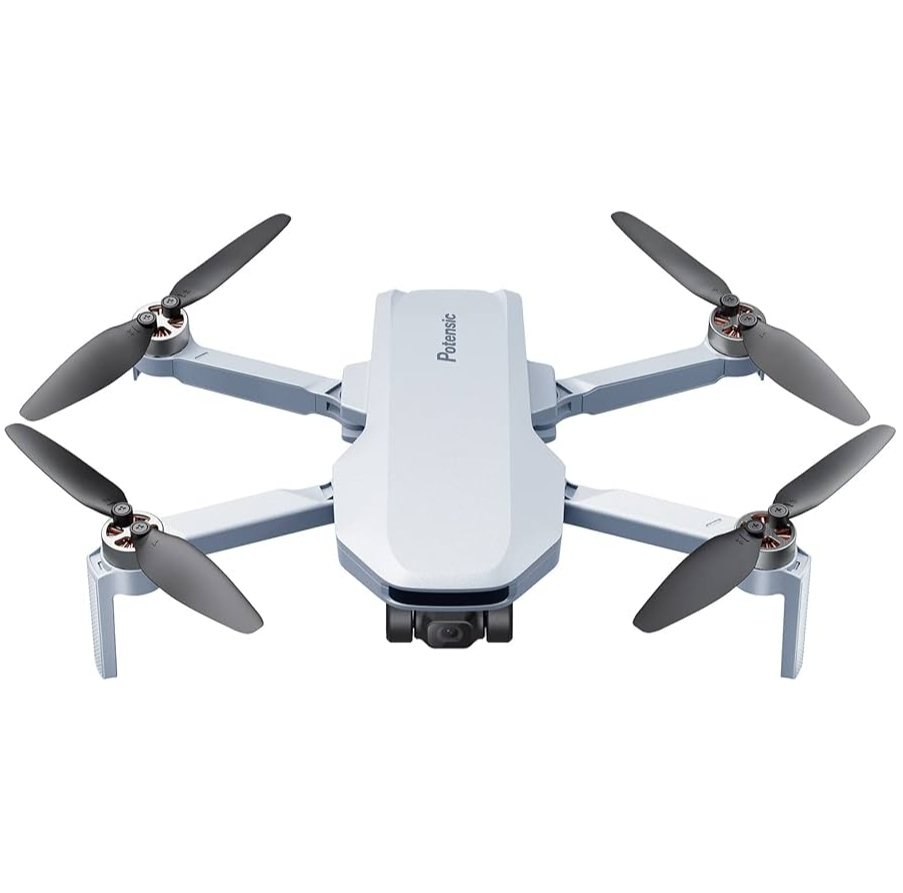
The Potensic Atom is a budget-friendly, lightweight drone with a 3-axis gimbal and beginner-friendly features. Despite its solid flight capabilities, it struggles with camera quality and wind resistance. Ideal for new drone pilots on a budget.
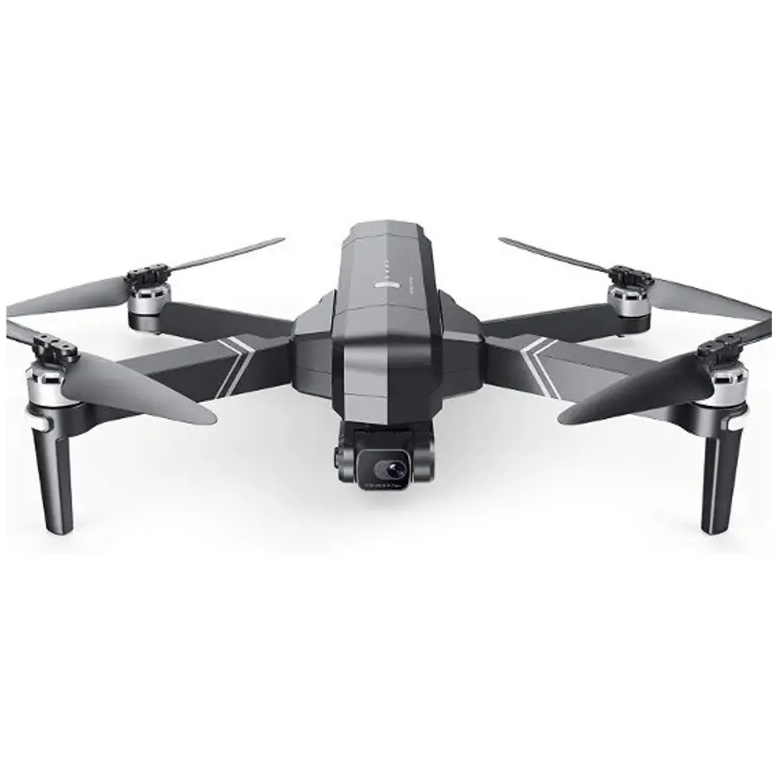
The Ruko F11 GIM2 is a sturdy, beginner-friendly drone with responsive controls and good wind resistance. However, its camera performance is mediocre, and retrieving footage can be confusing. Overall, it's a decent value for the price.
Best overall
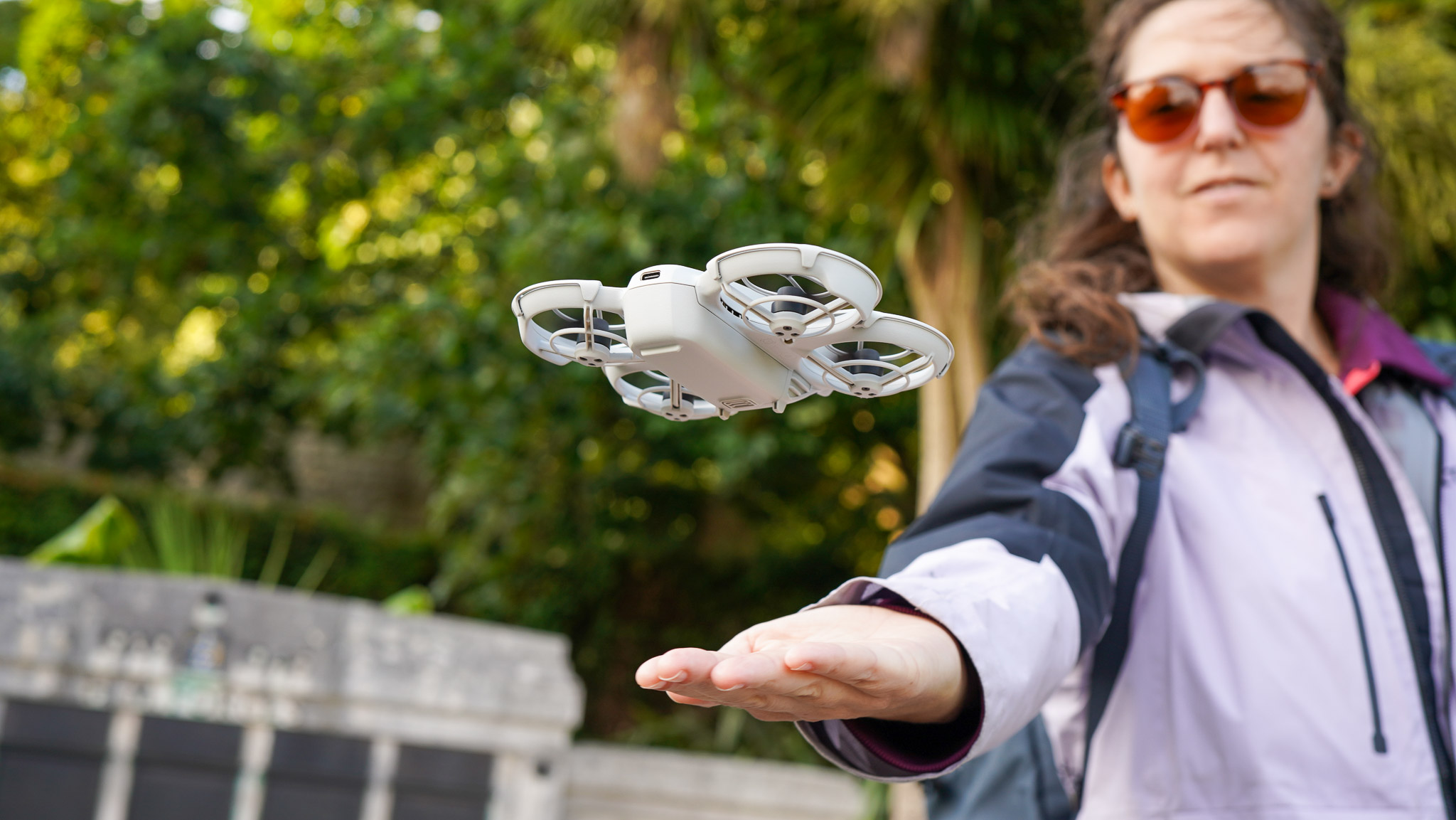
Specifications
Reasons to buy
Reasons to avoid
The DJI Neo is an exceptional choice for beginners, offering a balance of affordability, user-friendliness, and solid performance. Its lightweight design is complemented by intelligent autonomous flight modes, making it accessible even for novice pilots. The 4K camera allows for impressive aerial shots, while features like pre-programmed flight patterns ensure smooth footage.
Stability in light winds is notable, though it may struggle in stronger gusts. The flight time is slightly limited at around 17-18 minutes, and the autonomous speed is slower than some competitors. However, for its price point, it offers excellent value, and the easy-to-use controls make it ideal for hobbyists and content creators looking to capture high-quality visuals without a steep learning curve.
While not suited for professional or extreme conditions, it excels as an entry-level drone, providing everything a beginner would need to get started with drone piloting.
The DJI Neo stands out as the best beginner drone due to its simplicity, reliability, and robust feature set, ensuring a smooth and enjoyable flying experience from the start.
For anyone looking to venture into the world of drones without breaking the bank, the DJI Neo is an unbeatable option for novice pilots.
Read our full DJI Neo review.
Best premium
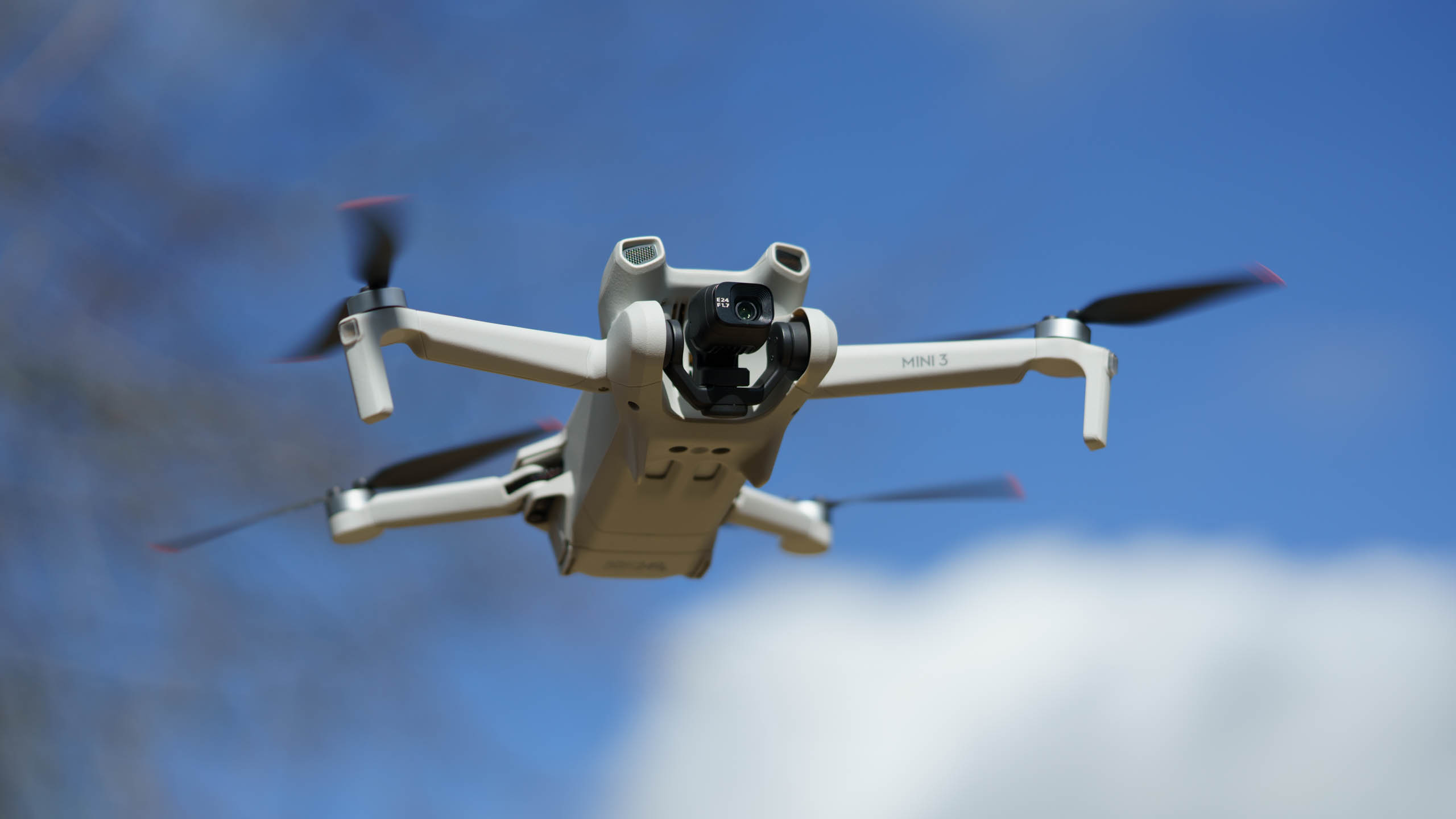
Specifications
Reasons to buy
Reasons to avoid
The DJI Mini 3 is a top-tier option for beginner drone users seeking premium performance in a compact, easy-to-use package. It features 4K video recording, 12MP stills, and a larger, 1/1.3-inch sensor than the Neo.
With its extended 38-minute flight time, the Mini 3 stands out for longer flights and capturing extensive footage. QuickShots modes allow for automatic, smooth video shots, perfect for newcomers wanting professional results without effort.
However, the Mini 3 lacks object avoidance and advanced tracking features found in higher-end models, but for first-time flyers, it's easy to handle and offers portability. It's lightweight yet robust, fitting easily into backpacks for on-the-go shooting.
Although not as advanced as some professional drones, the Mini 3 provides plenty of premium features at a reasonable price point, making it an excellent option for those wanting superior quality without jumping into complex or more expensive models.
Overall, it’s a perfect choice for those prioritizing high-quality content creation and longer flight sessions while keeping things beginner-friendly. Its impressive video quality, extended flight time, and portability make it one of the best premium drones for beginners on the market today.
Read our full DJI Mini 3 review.
Best affordable
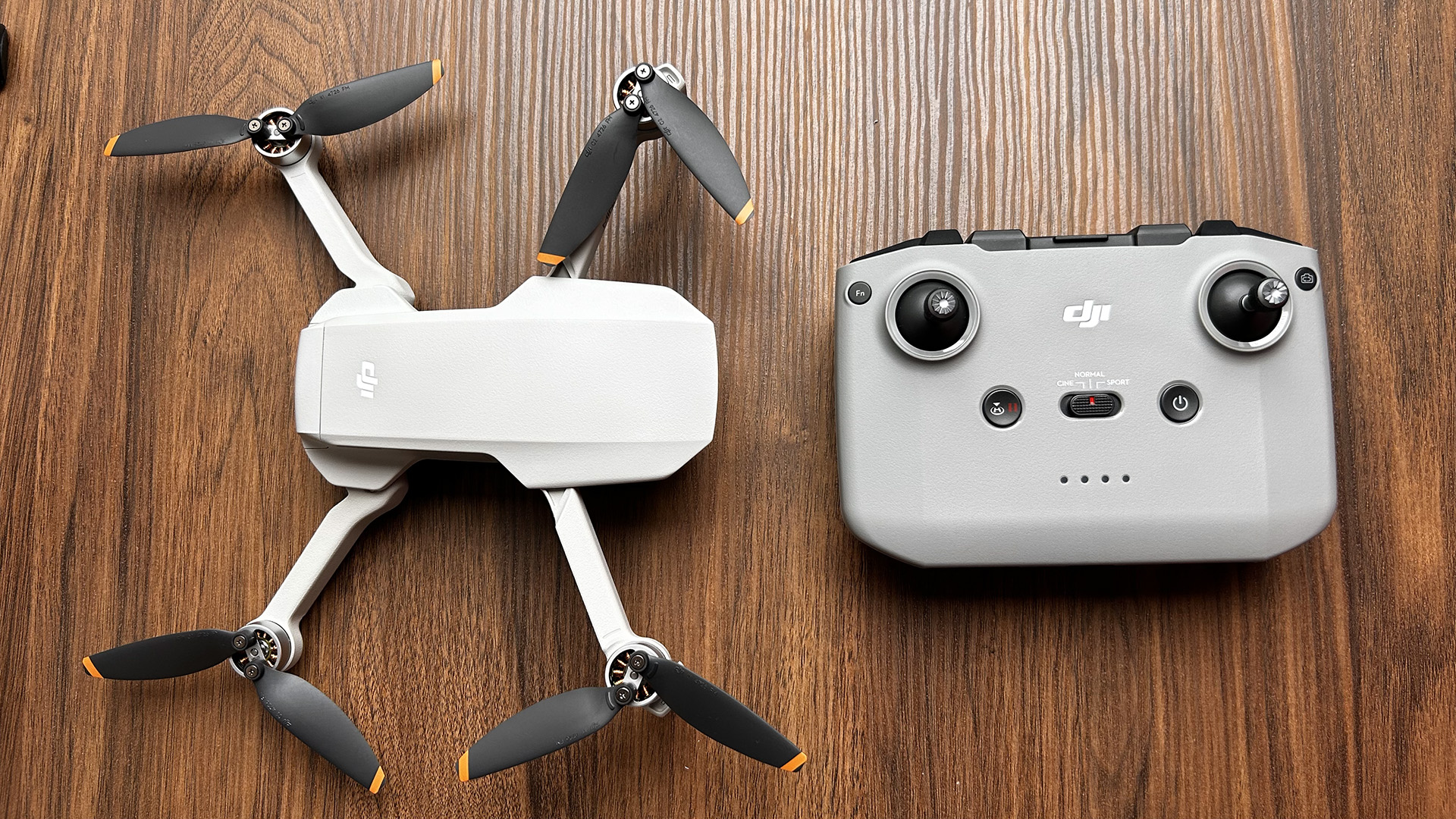
Specifications
Reasons to buy
Reasons to avoid
Given that cost is the main deciding factor when choosing a first-time drone, we can think of no better introduction to the thrills – and occasional spills – of drone flying than this top-value beginners’ model from DJI. This dinky drone weighs a floaty 249g fully loaded, which is one gram shy of the CAA’s 250g regulation, and that means you won’t need to jump through as many legal hoops to fly it (see our guide to UK drone regulations for more info).
The DJI Mini 2 SE is a superb drone for beginners. It offers plenty of user-friendly features, such as Quickshots video modes, Auto Takeoff and Landing, different return-to-home modes and more. Better still, it can also help you progress towards more professional-grade drones by allowing you to shoot photos in RAW format and fly the aircraft in different modes (slow, normal and fast).
There are a couple of small trade-offs, such as the lack of 4K video resolution and no True Vertical Shooting options, but at this price point, it's hard to be mad at the DJI Mini 2 SE. You get what you pay for and then some. Beginner drone pilots and aerial photographers on a budget – don't miss this!
Read our full DJI Mini 2 SE review.
Best DJI alternative
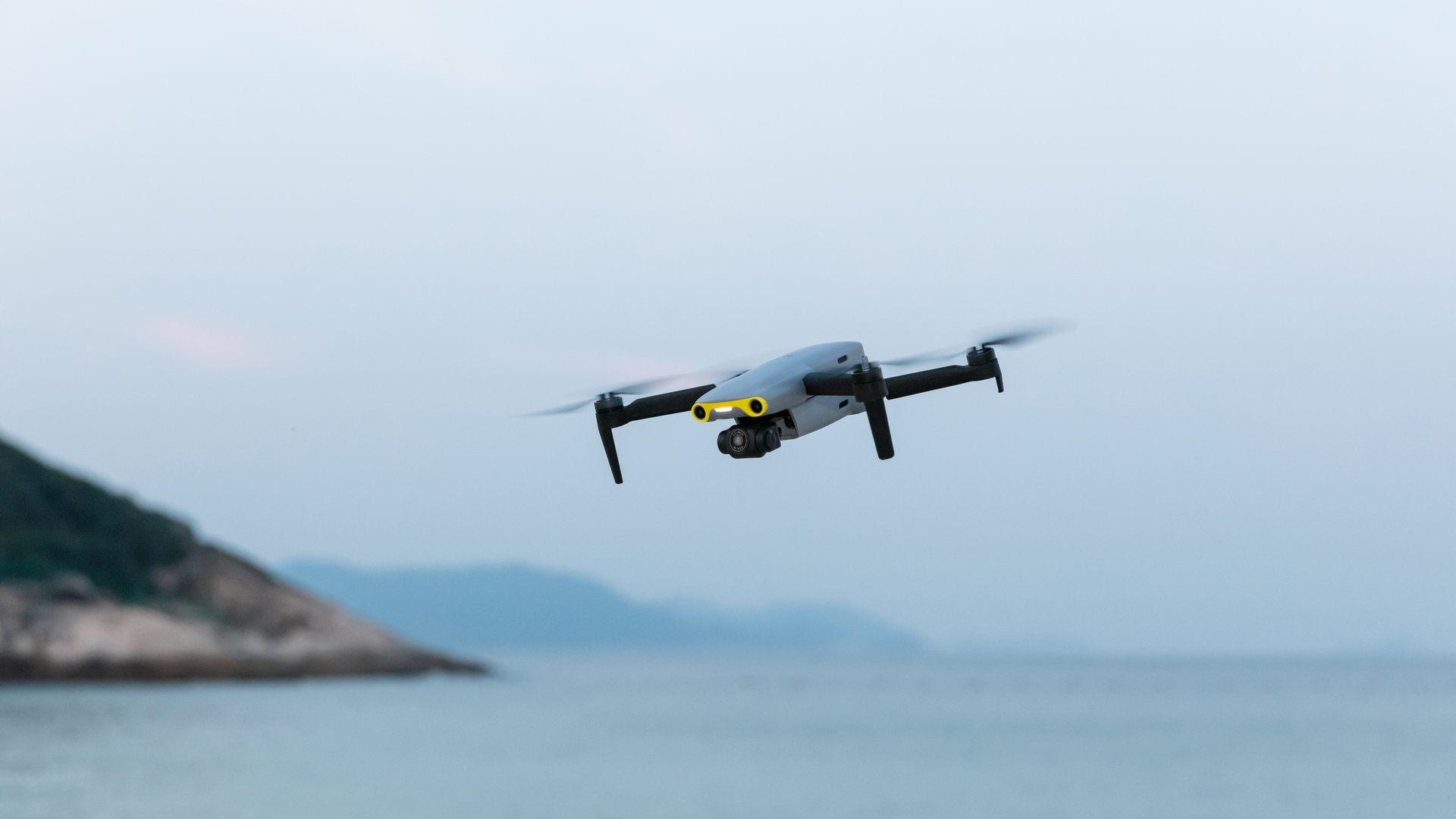
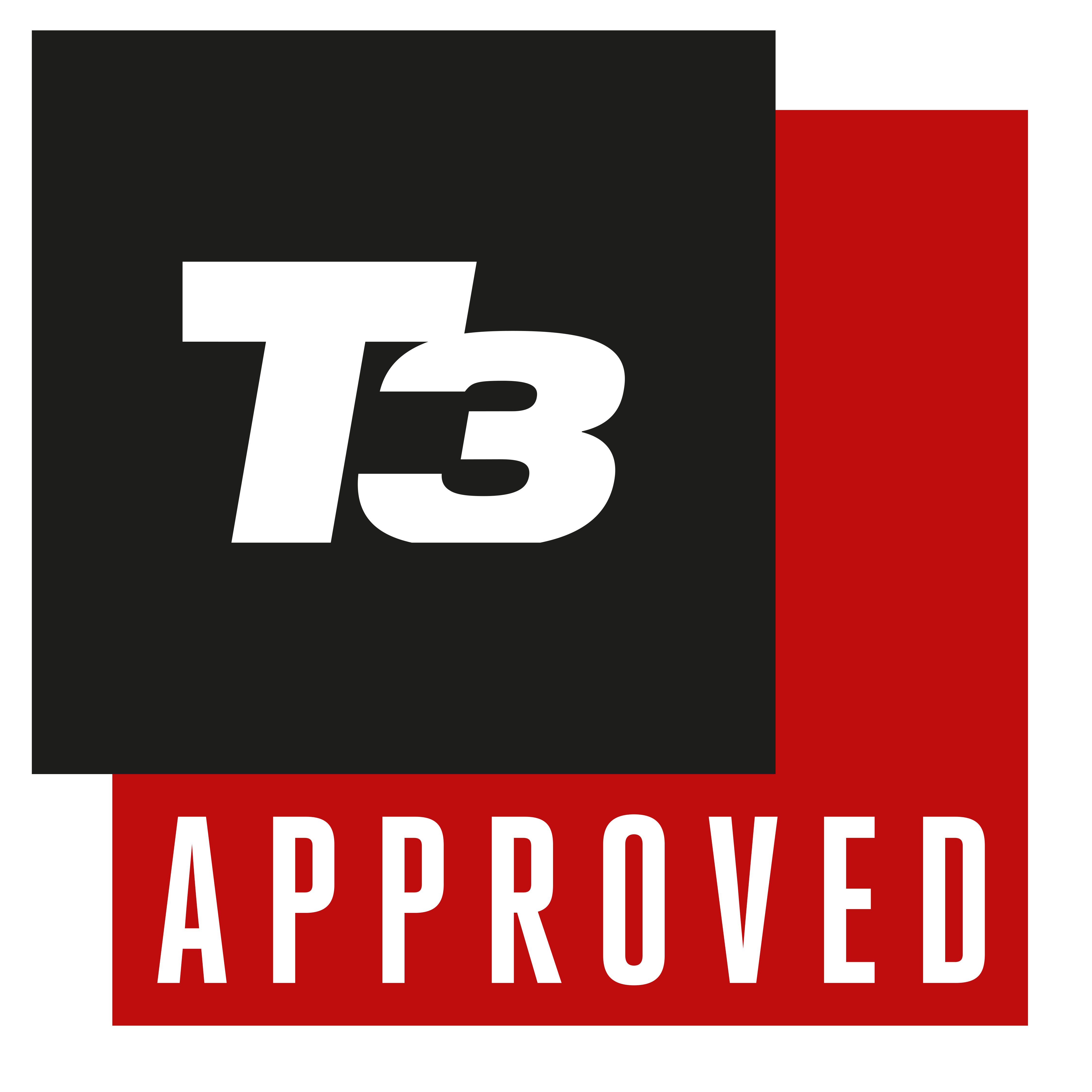
Specifications
Reasons to buy
Reasons to avoid
The Autel Evo Nano is the first drone to properly give DJI a run for its money in quite some time. In fact, if you have an unlimited budget, we'd probably recommend the Nano over the DJI Mini 2 because the latter has three-way obstacle avoidance sensors – undeniably useful for beginner drone fliers. There are a number of other features that make this a great choice for fledgling fliers. It's easy to set up, with a well-designed hand controller. It also clocks in under 250g, which means it's easy to transport, and you won't need to take heed of so many CAA regulations in order to get airborne.
Available in four colours – red, orange, white and grey – the Autel Evo Nano is also a drone that'll grow with you, thanks mainly to the outstanding camera, which has a 1/2-inch sensor that punches way above its weight, shooting 4K video and 48-megapixel stills. A beautifully weighted gimbal wheel creates super-smooth camera movement, and the camera also delivers a pin-sharp 2.7K live feed to your phone's screen – something that very few camera drones are capable of.
Read more in our Autel Evo Nano review.
Best cheap
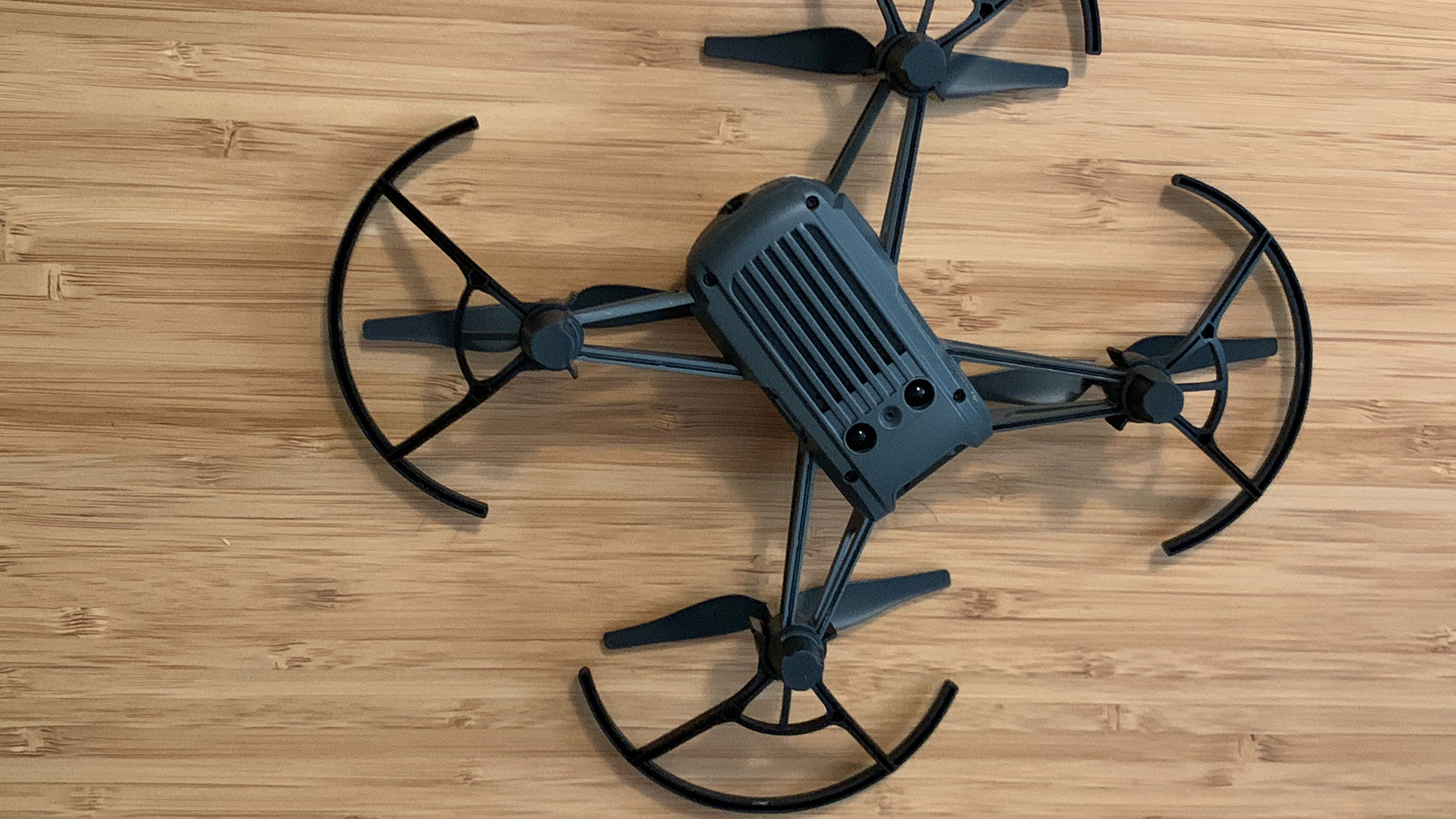

Specifications
Reasons to buy
Reasons to avoid
Aside from being one of the best-value drones for both indoor and outdoor flying, the Tello is also a brilliant learning tool since it can be programmed by the user to perform various movements using the Tello Edu mobile programming app (iOS and Android).
Not surprisingly, the Tello’s excellent flight characteristics and a raft of features are mostly a result of the DJI components it’s fitted with. It weighs just 80g and fits in the palm of the hand. To fly it, simply download the Tello app, connect the drone and use the virtual joystick controls – its vision positioning system is so well designed that you could take it off, go and make a cup of tea and when you get back, it’ll still be in the same position.
The Tello can also be launched by throwing it into the air, and it will even perform a circus of aerial tricks. But what really makes this little drone such a hit is that it comes with a 720p/5mp camera that streams digitally stabilised footage straight to a smartphone. The quality of the footage and photos it produces is pretty good for a drone of this size and perfectly acceptable for casual holiday use. Moreover, it also comes with a trio of handy pre-programmed EZ Shots (Circle, 360, Up & Away) for quick, fuss-free footage. It’s hard to believe so much tech could be crammed into a drone of such diminutive dimensions – and all for such a bargain price.
Read our full Ryze Tello review.
Best for autonomous functions
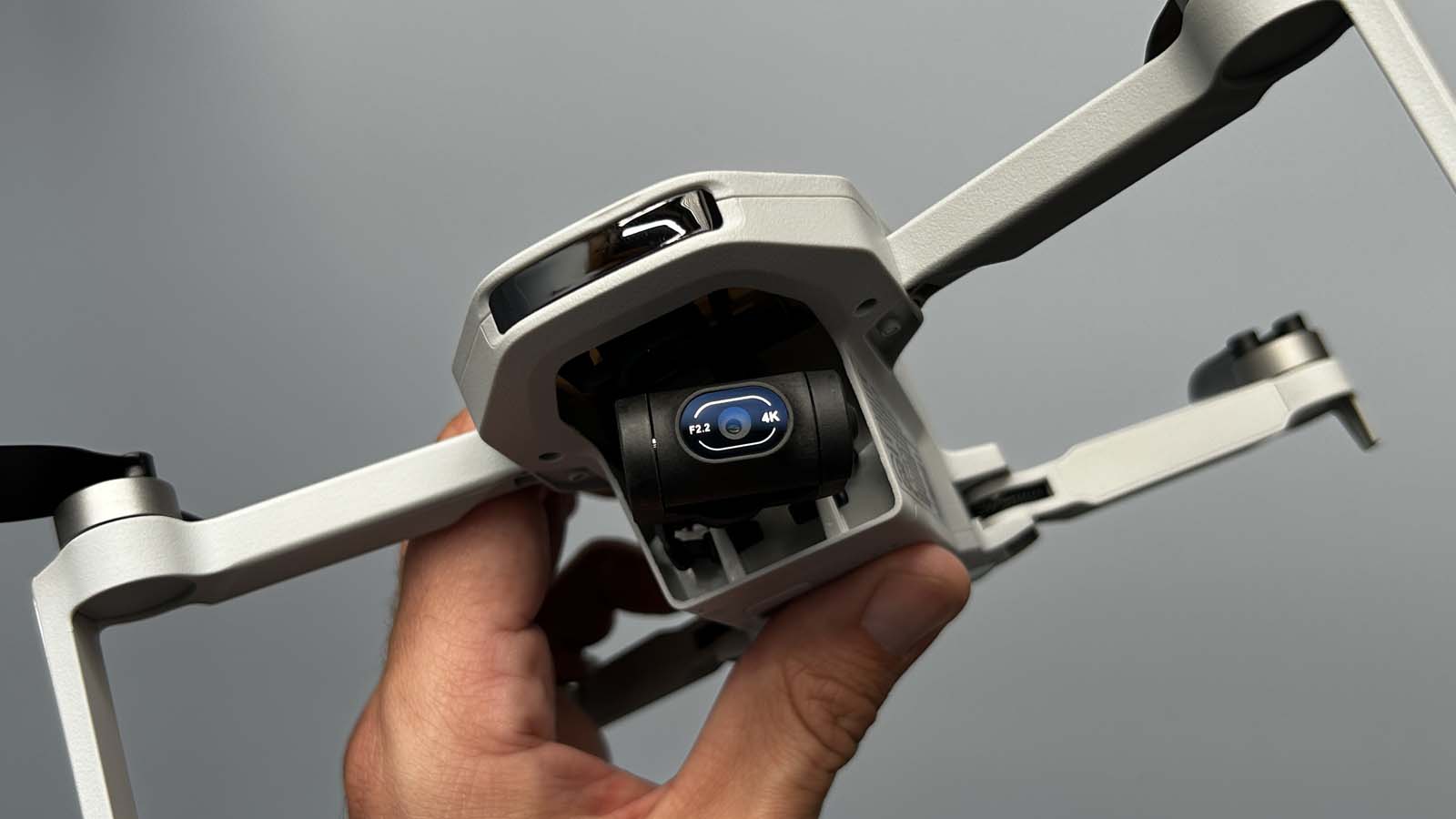
Specifications
Reasons to buy
Reasons to avoid
Being a camera drone and all, it's not easy to recommend the Potensic Atom based on video quality alone – the camera performance isn't the best, to say the least. If you want to shoot beautiful landscapes of rolling hills in the sunset, you'll be bitterly disappointed with the Atom.
That said, it's tough (and unfair) to judge the Potensic Atom without taking the price into account. This is very much a budget flying tripod that offers many beginner-friendly features and solid flight capabilities for not a lot of money. If you can't justify paying 5-6 times as much for a mid-range DJI, the Atom will help you experience drone piloting without breaking the bank.
Although we wouldn't write home about the video performance of this drone, it's certainly good enough for hobby drone flyers. It might not be super sharp or balanced, but under optimal weather and light conditions, you'll be able to create decent footage for yourself.
Best of all, that 3-axis gimbal makes good use of the autonomous flight features, helping you create cinematic footage with just a press of a button. Not bad for a budget, lightweight drone!
Read our full Potensic Atom review.
Also consider: Underwhelming camera performance aside, the Potensic Atom SE is a very decent beginner drone. It's not massively more affordable than the DJI Mini 2 SE but offers more flying modes and some extra features, potentially making it more appealing to those who prioritise the flying experience over camera footage.
Best for manouverability
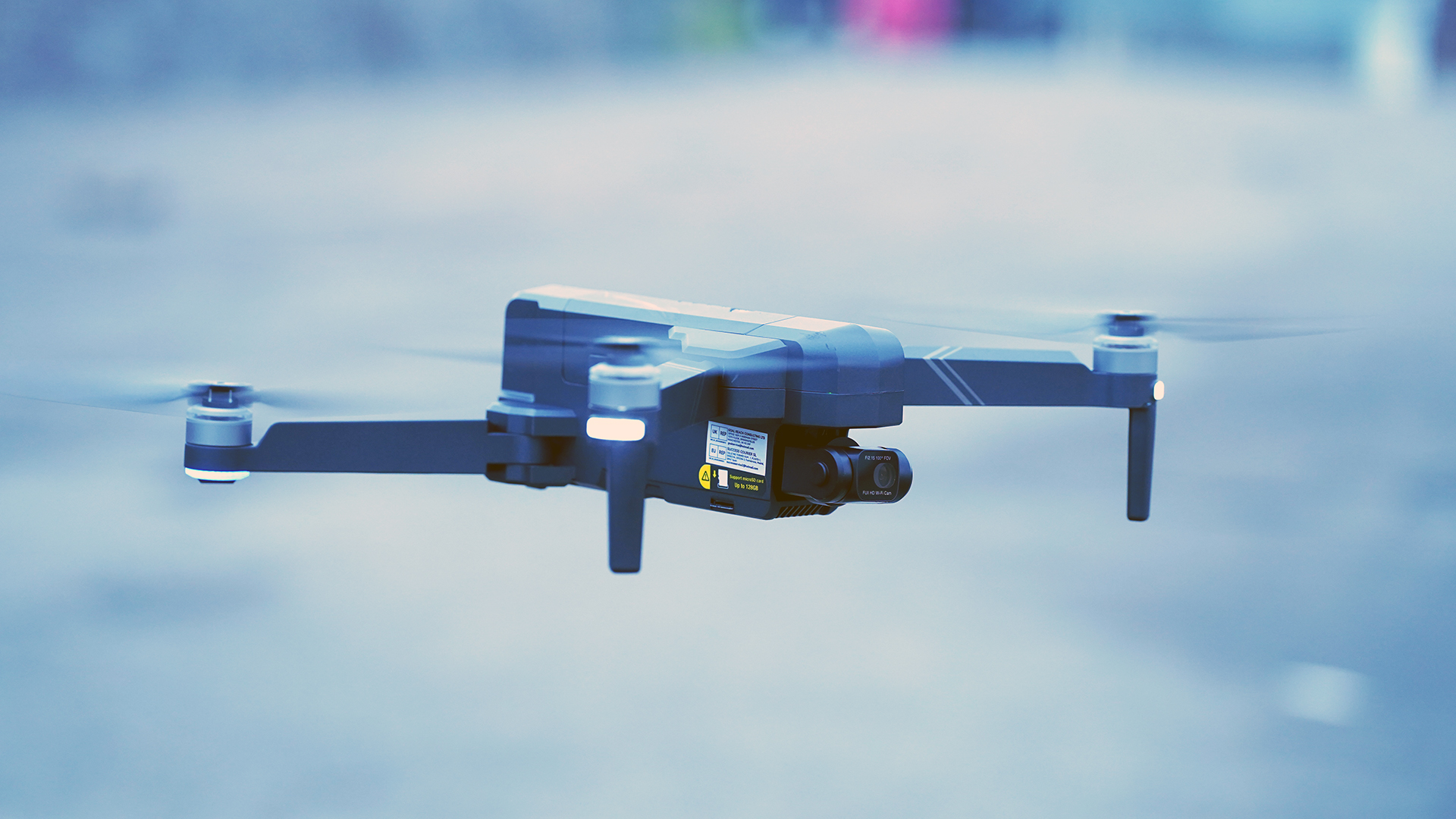

Specifications
Reasons to buy
Reasons to avoid
The Ruko F11 GIM2 beginner drone has its strengths and weaknesses. It's somewhat heavy, and the camera performance is okay at best, but it's easy enough to fly, and thanks to the spare battery and carry case included in the price, it's a decent value-for-money proposition.
The drone is often on offer, and if you come across it for a discounted price – and have the appropriate licence to fly it – you might as well give it a try. Don't expect the Ruko F11 GIM2 to provide stunning videos similar to DJI drones, though, especially if you're trying to create content for social media (i.e. vertical videos).
However, if the flying experience is as important to you as the quality of the footage, and you haven't got tons of cash to spend on your new hobby, you should keep your eyes peeled for a cheap Ruko drone offer (roll around, Black Friday!).
Read our full Ruko F11 GIM2 review.
How to buy the best beginner drone for you
You’ll notice quite a few DJI and Autel models in our current list of drone articles, and indeed practically every other online guide to drones currently on the internet. This is because DJI and Autel are so far ahead of the curve when it comes to drone design and flight electronics that other manufacturers simply cannot keep up. Yes, there are loads of much, much cheaper drones (including a surfeit of DJI clones) littering the Amazon shopping mall, but the brutal truth is that none of them holds a candle to DJI or Autel.
Where the average Autel and DJI drone flies straight out of the box, the majority of cheap drones require complicated pairing with a phone that rarely works the first time you try it. This makes them frustrating to use right from the off. But that’s not all. Many companies will tell you that their budget-priced drone comes with an amazing 4K camera capable of taking stunning images and professional-quality video.
In reality, the video quality is usually a great disappointment (ie crap), mostly because the camera, its sensor and its electronics are cheap and substandard. Worse, the camera probably isn’t attached to a mechanical 3-axis gimbal, the clever gizmo that ensures video footage is smooth and jitter-free. In fact, it most likely uses a digital stabilising system instead, or worse, it has no stabilisation at all. Cheap drones are usually also equipped with cheap batteries that give up the ghost after about 10 minutes in the air.
Many cheap drones also tend to misbehave once airborne and perhaps fly erratically for some bizarre reason. Indeed, erratic flight behaviour was a well-known anomaly with DJI’s earlier Phantom drones, but years of research and development have erased pretty much every hiccup in its flight systems.
What we’re saying here is that, when it comes to drone choice, there are really only two truly reliable players, and those players are DJI and Autel. Their machines simply behave impeccably well, are a doddle to set up and fly and are filled with a staggering amount of sci-fi tech that keeps them reliably aloft in a range of atmospheric conditions. DJI and Autel's cameras, too, are widely considered to be among the very best for their purpose.
FAQ
How much should a beginner spend on a drone?
As much as you can afford, of course. Entry-level drones will have lower camera resolution and fewer autonomous flying options, while more expensive models can shoot pin-sharp videos and photos and do most of the work for you. That said, there is no need to splash the cash or take out a loan if you only want to fly a drone for fun. Technology gets cheaper as time passes, so yesteryear's top beginner drone might be much more affordable today.
Get all the latest news, reviews, deals and buying guides on gorgeous tech, home and active products from the T3 experts

Matt Kollat is a journalist and content creator who works for T3.com and its magazine counterpart as an Active Editor. His areas of expertise include wearables, drones, fitness equipment, nutrition and outdoor gear. He joined T3 in 2019. His byline appears in several publications, including Techradar and Fit&Well, and more. Matt also collaborated with other content creators (e.g. Garage Gym Reviews) and judged many awards, such as the European Specialist Sports Nutrition Alliance's ESSNawards. When he isn't working out, running or cycling, you'll find him roaming the countryside and trying out new podcasting and content creation equipment.